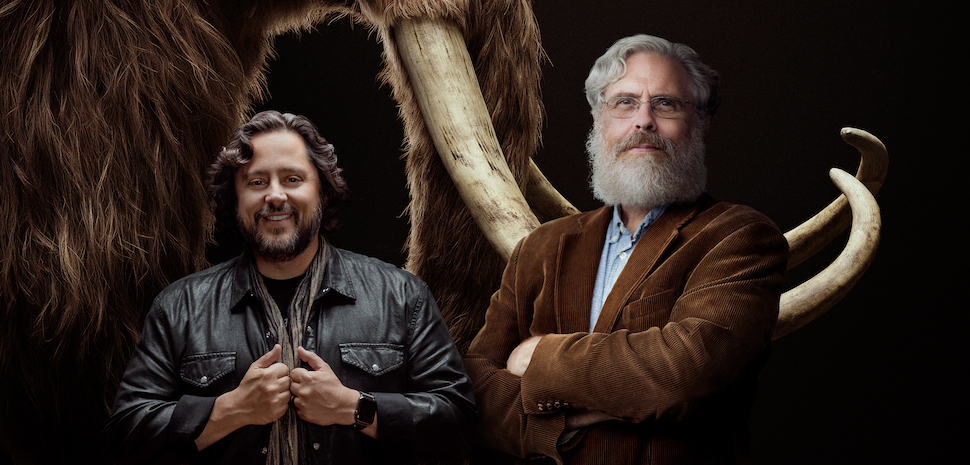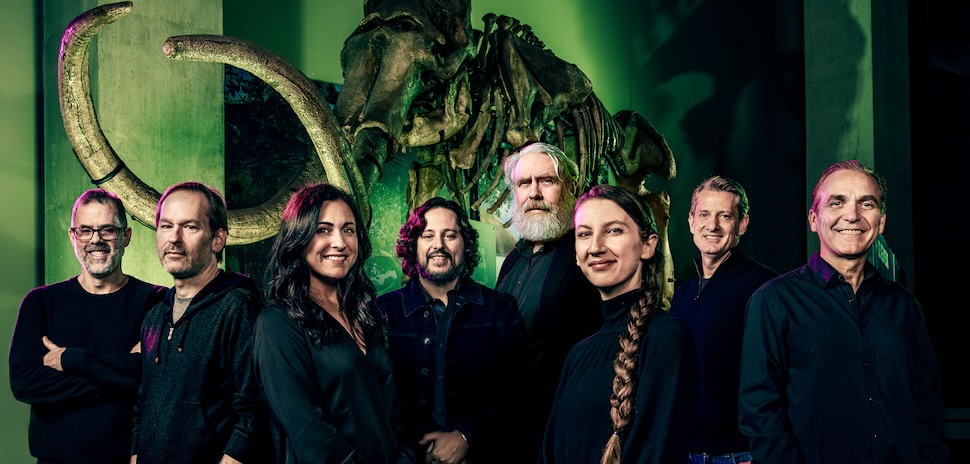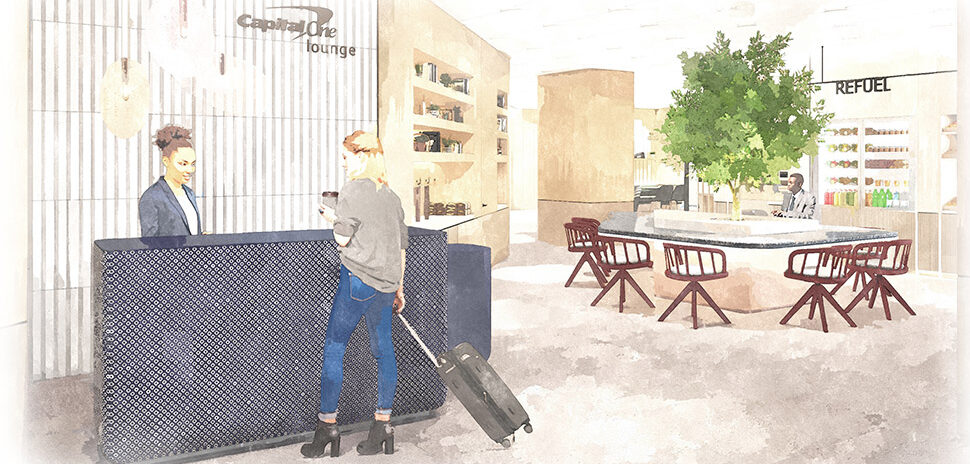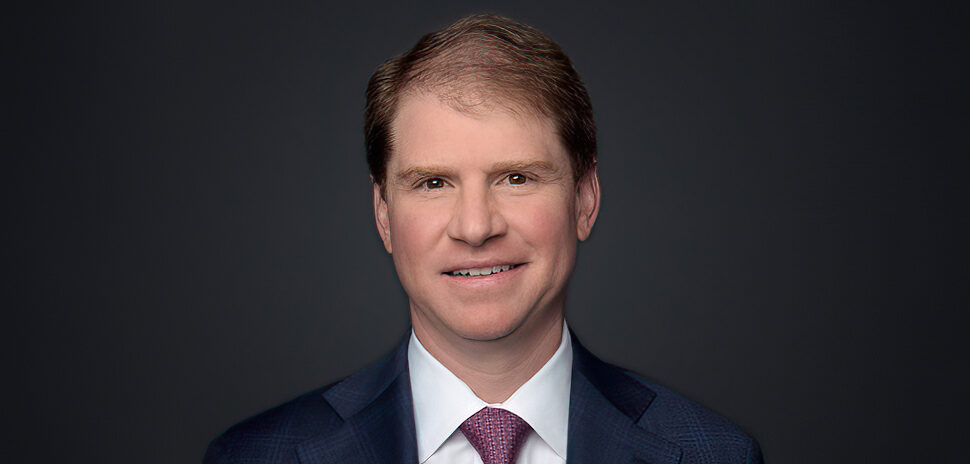Dallas-based Colossal Biosciences—a startup that aims to “de-extinct” the woolly mammoth—has raised $60 million in new funding to help it achieve goals that co-founder and CEO Ben Lamm says “will change the world.”
The oversubscribed Series A financing round was led by Thomas Tull and At One Ventures, with participation from Untamed Planet, Animoca Brands, Breyer Capital, Animal Capital, Arch Ventures co-founder Robert Nelsen, Paris Hilton, Bold Capital, First Light Capital Group, Boost VC, Jazz Ventures, Builders VC, Green Sands Equity, Draper Associates, and Charles Hoskinson, among others.
Lamm and his co-founder, Harvard Medical School geneticist Dr. George Church, launched Colossal last September with $15 million in funding. Today’s announcement puts its total raise at $75 million.
“With this most recent financing, Colossal is positioned to realize long-researched breakthroughs that can support the restoration of healthy ecosystems,” said investor Tom Chi of At One Ventures, in a statement. “We’ll soon have the choice of moving from the role of blind destroyer of the world’s species toward being the thoughtful kin of all the life around us.”
‘Larger implications for conservation, science, and humanity’
Lamm says Colossal has goals that go beyond bringing back the mammoth.
“We’re making the path to de-extinction and species preservation a reality by bringing the planet one step closer to reversing the downward trend of ecosystem degradation and the staggering loss of biodiversity through cutting-edge genetic tools,” Lamm said in the statement. “The technologies and solutions developed through our mammoth restoration project will not only return Arctic elephants to the tundra, but will target larger implications for conservation, science, and humanity.”
Along with its focus on radical new “de-extinction” technologies, Colossal aims to advance the fields of species preservation and human healthcare through genomics.
Colossal’s ‘mammoth’ core project

Colossal co-founders Ben Lamm and Dr. George Church [Photo: Colossal]
Still, the headline that grabbed millions in September was Colossal’s plan to bring back the woolly mammoth—by using CRISPR genetic engineering to create a mammoth-elephant hybrid that can survive in the Siberian Arctic tundra.
The tundra—once a thriving grassland—is now a rapidly warming, moss-covered expanse threatened by climate change. Dr. Church believes that herds of woolly mammoth hybrids could one day turn the tundra back to grassland by breaking it up and fertilizing it with their feces, as they may once have done thousands of years ago. That could lead to carbon sequestration and other positive conservation impacts.
“Our goal is full rewilding of the woolly mammoth into the Arctic,” Lamm told Dallas Innovates in September. Today he updated the timeline: “Our goal is still to have our first set of calves in 4 to 6 years.”
The New York Times reported that Colossal’s scientists will try to create an elephant embryo with its genome modified to make it resemble a wooly mammoth—right down to the flowing hair, fatty body, and high-domed skull.
Instead of implanting the embryo in a female elephant (too many surrogates would be needed), Dr. Church plans to create an artificial mammoth uterus lined with tissue grown from stem cells.
Meanwhile, the team is laying the groundwork in the Arctic.
“We’ve already started talking to several government agencies, private landowners, and consultants for indigenous people in the area,” Lamm told us. “The key for us to embrace radical transparency and start those conversations now while we’re still in genetic development.”
A day in the life of Colossal’s team of 48
Lamm told Dallas Innovates that his Colossal team has expanded to 48 people in its first five months, including six post-doctoral candidates working in Dr. Church’s lab. We asked what a typical day for the team was like.
“I don’t think there’s a typical day at any startup, especially one like Colossal,” Lamm told us. “We have teams working on genetic editing, teams working on computational biology and comparative analysis, teams working on exo-dev projects as precursors to the artificial womb.”
“We have people that work on securing various tissue samples—both current and ancient. We have team members who meet with non-profit and rewilding partners as well as conservation groups, as well as incredible engineers coding our next-gen software. All this to say that Colossal is made up of an incredible team of multidisciplinary individuals who are working on bleeding-edge science and engineering. No two jobs are alike, nor are two days alike at Colossal.”
Colossal’s mission is many things—but don’t call it a ‘moonshot’
“According to the historic definition, a moonshot is an ambitious, exploratory, and ground-breaking project undertaken without any expectation of near-term profitability or benefit,” Lamm said. “And also, perhaps, without a full investigation of potential risks and benefits.”
Lamm calls Colossal’s de-extinction project “a ground-breaking project that will change the world.” And while Colossal’s mission can certainly be called ambitious, the co-founder says his team has been “incredibly thoughtful” about the risks and benefits the project could hold for the world.
“From combating climate change through Arctic rewilding to developing genomic gestational technologies for saving critically endangered species,” Lamm said, “our teams have reviewed peer-reviewed published papers on the positive impact of our work and have fully investigated the various approaches around Arctic rewilding.”
Monetizing Colossal’s projects
Colossal’s focus today is squarely on science—but like any founder, Lamm has plans for monetization as well. Just not right away.
“Colossal as a company has a strong but long-term-focused monetization plan,” Lamm said. “We’re not focused on monetization at this time, but plan to monetize the various technologies we develop along the way in the form of software, wetware, and hardware.”
Developing ‘genetic toolkits’ with implications for ‘all mammals’
Colossal aims to develop genetic toolkits and support DNA databases that will aid in the restoration, diversification, and “rewilding” of endangered species.
“While we’re working towards our first calves, we’ll be developing various parts of our de-extinction toolkit,” Lamm said. “Some technologies will become available sooner than our first calves. The goal is, over time, to build the full toolkit for species preservation and recovery.”
Colossal says its work will enable population-based sequencing and computational analysis of elephants and mammoth genomes, genome editing, and viral disease resistance, as well as ex-vivo development.
The reproductive tech Colossal is developing could do more than reintroduce mammoth-elephant hybrids into the Arctic, the company says: It could also have “positive implications for all mammals” and allow for a deeper understanding of evolutionary change in “countless critical species.”
New funding will lead to expanded labs and hiring—with impacts on humans, too
Colossal says the new funding will expand its woolly mammoth project, and also lead to expanded labs and hiring “to support the development of breakthrough genetic editing tools, software, and wetware for use in human health and disease prevention.”
Lamm reiterated that Colossal’s efforts could lead to breakthroughs for humans, not just de-extincted mammoths.
“In addition to the technologies we have exclusively licensed, we’re also developing our own technologies,” he said. “Some of the technologies we’re developing will be focused on human use cases as well as animals.”
Thomas Tull, lead investor in Colossal, spoke directly of that human impact, saying that companies like Colossal “are imperative to our future.”
“As the Covid-19 pandemic has demonstrated, scientific innovation—and funding to support it—has never been more important,” Tull said in the statement. “Led by visionary geneticist George Church, Colossal has some of the best minds focused on developing breakthrough tools that are poised to have a material impact on science and biotechnology, from the eradication of diseases to the development of new drugs, CRISPR DNA sequencing, and even solving challenges around reproduction.”
Adding renowned scientists to its advisory board—and bolstering its teams
Colossal says it has continued to add multiple “world-renowned” scientists to its Scientific Advisory Board, including David Haussler, Ph.D, Alexander Titus, Ph.D, Erez Lieberman Aiden, Ph.D, and Beth Shapiro, Ph.D—who will also act as one of Colossal’s paleogenomics leads.
In its next phase of growth, Colossal plans to “dramatically accelerate” hiring across the company’s computational biology, embryology, stem cell biology, software engineering, advanced biology, medical device hardware, and genomics teams. Primarily based in Dallas, Austin, and Boston, the startup says it will continue to build a mix of centralized and remote teams to maximize diversity and reach the “broadest set of talent.”
Lamm will participate in a SXSW panel
Lamm will have an audience a week from Friday as he continues to share his Colossal goals. He’s participating in a panel at the South by Southwest conference on March 18 at the Austin Convention Center. The session, “A Colossal Mission: A Case for De-Extinction,” will be moderated by Richard Garriott, president of the Explorer’s Club and an investor in Colossal.
The story was updated with additional clarification on March 10, 2022, at 10:01 a.m.
![]()
Get on the list.
Dallas Innovates, every day.
Sign up to keep your eye on what’s new and next in Dallas-Fort Worth, every day.































